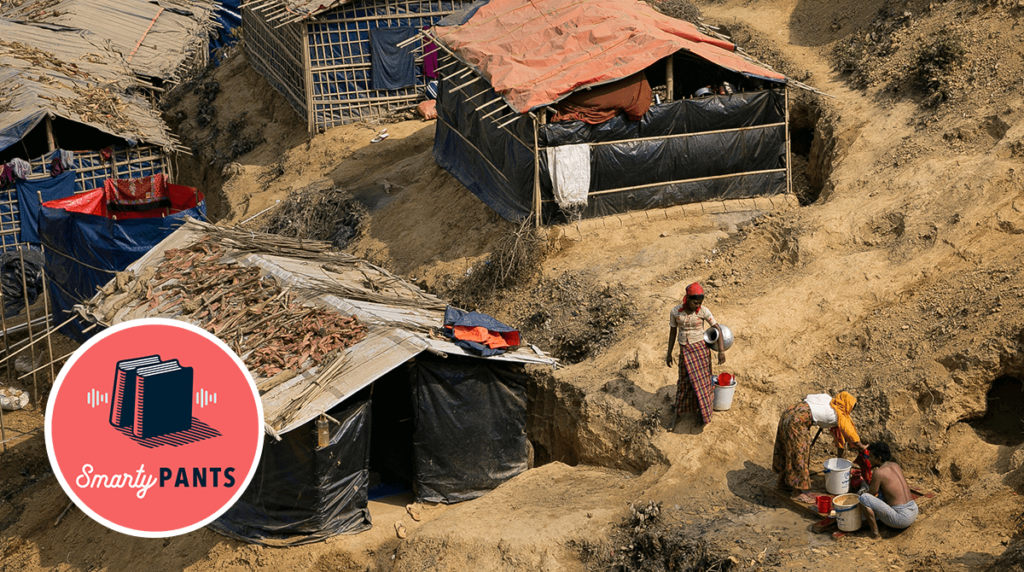
Since August 2017, in the country’s latest wave of Buddhist-on-Muslim violence, over 647,000 Rohingya refugees have fled Myanmar due to systemic violence and ethnic cleansing that has killed more than 10,000 people. Why is a religion seen as so peaceful in the West lashing out with such vehemence, and why are the Rohingya their target? And how did a seemingly local conflict erupt across the entire country? Journalist Francis Wade, who has reported in Myanmar for a decade, gives us the deep history, which stretches farther back than contemporary reports might suggest, and reveals a tangled web of interests: ultranationalist Buddhist monks, a military fearful of losing its grip on power, implicit racial hierarchies, and a democratic political party, led by Aung Sang Suu Kyi, whose very principles are called into question.
Go beyond the episode:
- Francis Wade’s Myanmar’s Enemy Within: The Making of a Muslim “Other”
- Read the UNHCR’s report on the Rohingya emergency
- During the reporting of “Massacre in Myanmar,” on the systemic destruction of Rohingya villages, two Reuters reporters were arrested by Myanmar security forces and are still in custody
- Hanna Beech asks in The New Yorker, “What Happened to Myanmar’s Human-Rights Icon?”
- For daily coverage of Myanmar politics, read The Irrawaddy
- Explore the Tea Circle, an Oxford forum for new perspective on Burma/Myanmar
Tune in every week to catch interviews with the liveliest voices from literature, the arts, sciences, history, and public affairs; reports on cutting-edge works in progress; long-form narratives; and compelling excerpts from new books. Hosted by Stephanie Bastek.
Subscribe: iTunes • Feedburner • Stitcher • Google Play • Acast
Download the audio here (right click to “save link as …”)
Have suggestions for projects you’d like us to catch up on, or writers you want to hear from? Send us a note: podcast [at] theamericanscholar [dot] org. And rate us on iTunes!
Our theme music was composed by Nathan Prillaman.

